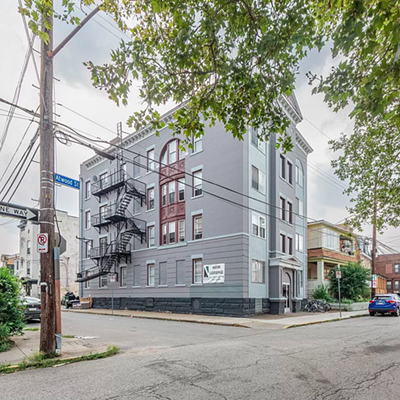Pittsburgh Mayor Bill Peduto signed an inclusionary zoning pilot for Lawrenceville on Thursday, after a bill introduced by Pittsburgh City Councilor Deb Gross (D-Highland Park), who represents Lawrenceville, passed council unanimously on Wednesday.
According to PublicSource, Gross said on Wednesday, “This is really a historic moment.”
Today’s final vote was also unanimous! https://t.co/xCHXFGHp5S
— Deb Gross (@DebGrosspgh) July 24, 2019
The ordinance will be temporary and only active for 18 months. It requires developers building rental-housing complexes in Lawrenceville that are greater than 20 units to ensure at least 10 percent of their units are affordable to households at or below 50 percent of the Area Median Income (AMI).
According to local affordable-housing developer Action Housing, that means a household of one person would be eligible if they made $28,000 a year or less, and a household of five people would be eligible if they made $43,150 a year or less.
Indianapolis-based developer Milhaus is building a large extension to their Arsenal 201 complex on Butler Street, and the developer is supportive of the inclusionary zoning pilot. The new development will create 35 units affordable to people making at or below 50 percent AMI.
If developers are building for-sale homes, they must set aside 10 percent of those for-sale homes to be affordable to 80 percent AMI, which is $44,750 for a household of one, and $69,050 for a household of five.
According to PublicSource, developers can also comply by selling those properties to a Community Land Trust, which Lawrenceville currently has, or secure a deed restriction to keep the property affordable.
Units designated affordable under the ordinance must remain that way for 35 years.
Pittsburgh enacting an inclusionary zoning policy, even if temporary, is rare among comparable cities. Many Rust Belt cities have more affordable home prices available compared to higher-cost cities like New York, San Francisco, or Washington, D.C. But even Pittsburgh, which still has several neighborhoods with large stocks of relatively inexpensive housing, also has neighborhoods where housing prices are rising fast and contributing to gentrification. This is a stark problem in Lawrenceville.
According to Grounded Solutions Network, other similar Rust Belt cities like Cleveland, Buffalo, and Cincinnati have not enacted any inclusionary zoning policies. Pittsburgh joins Detroit as one of the few comparable cities to pass some form of inclusionary zoning policy.



















